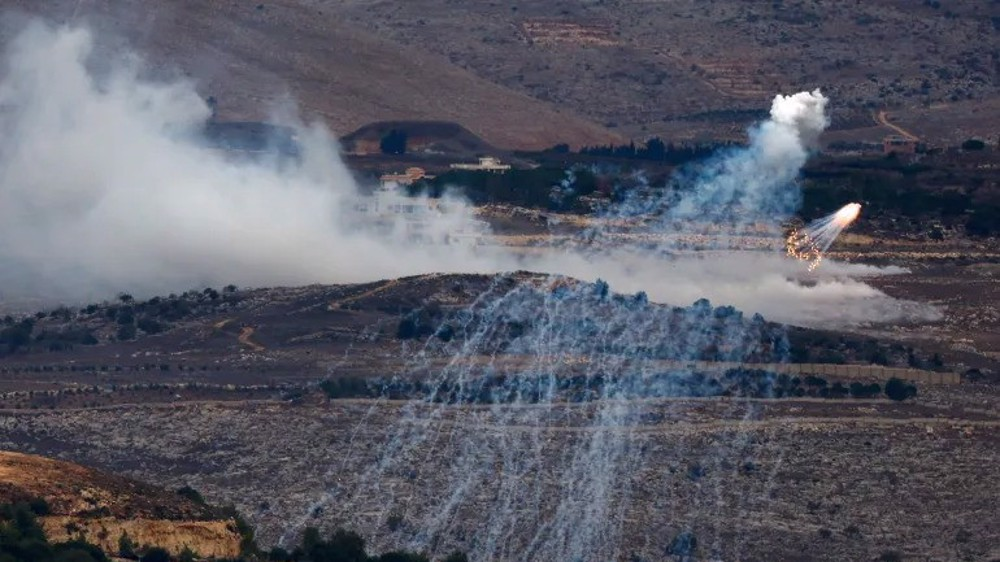
White phosphorus fired by Israel is seen on Lebanon border, November 12, 2023. (A photo by Reuters)
Beirut, June 24 (RHC)-- Israeli forces in recent months have targeted forests and populated areas in southern Lebanon with internationally banned white phosphorus bombs and munitions, local media reports say.
Lebanon's official National News Agency reported that the most recent attacks occurred near the town of Kfar Kila. Israeli forces are also carrying out “a search operation” near Kfar Kila from their base in Metula, a town on the northern side of the 1948 Israeli-occupied territories.
The report further says the attacks endangered civilians' lives and caused massive fires in the region.
Israel continues to use white phosphorus munitions in south Lebanon, causing lasting damage and driving villagers away. A series of reports have said that white phosphorus attacks are “putting civilians at grave risk” and “contributing to displacement”.
A recent investigation by Qatar-based al-Jazeera found that Israel had dropped 117 phosphoric bombs on southern Lebanon, striking at least 32 towns and villages between October and March.
The impacted area spanned nearly the entirety of Lebanon’s 100km southern border with the occupied territories. Israel’s repeated use of white phosphorous has drawn the ire of international humanitarian organizations.
On March 19th, Oxfam called on the administration of US President Joe Biden to “immediately suspend arms transfers to Israel.” Israel reportedly used U.S.-supplied white phosphorus munitions in an October attack in southern Lebanon, according to a Washington Post investigation in December.
Photos and videos verified by international rights groups and reviewed by The Post show the characteristic ribbons of white phosphorus smoke falling over Dheira, a southern Lebanese village, on October 16.
Lot production codes found on the shells match the nomenclature used by the U.S. military to categorize domestically produced munitions, which show they were made by ammunition depots in Louisiana and Arkansas in 1989 and 1992, the report back then said.
Lebanon has been urged to file a declaration with the International Criminal Court (ICC) to enable an investigation and prosecution of the Israeli regime.
Tensions remain high along Lebanon’s southern border, where the Hezbollah resistance movement is engaged in intense clashes with Israeli forces. Hezbollah has been carrying out almost daily rocket attacks on Israeli positions in retaliation for the regime’s aggression against Lebanon and in solidarity with Palestinians.
The genocidal war in Gaza has killed at least 37,600 Palestinians, predominantly women and children so far.

